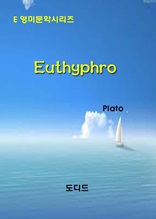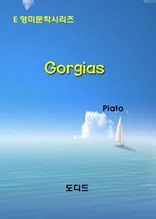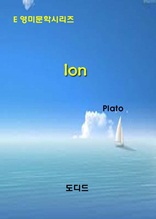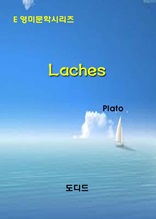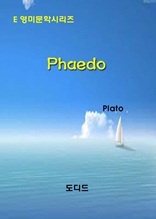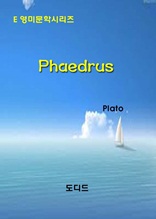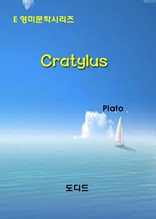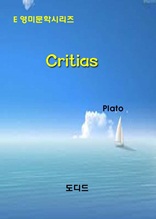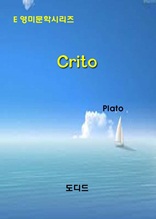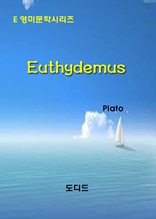Euthyphro
도서정보 : Plato | 2014-03-17 | EPUB파일
지원기기 : PC / Android / iOS
This Euthyphro and Socrates are represented as meeting in the porch of the King Archon. (Cp. Theaet. sub fin.) Both have legal business in hand. Socrates is defendant in a suit for impiety which Meletus has brought against him (it is remarked by the way that he is not a likely man himself to have brought a suit against another) and Euthyphro too is plaintiff in an action for murder which he has brought against his own father. The latter has originated in the following manner ?A poor dependant of the family had slain one of their domestic slaves in Naxos. The guilty person was bound and thrown into a ditch by the command of Euthyphro’s father who sent to the interpreters of religion at Athens to ask what should be done with him. Before the messenger came back the criminal had died from hunger and exposure.
구매가격 : 1,000 원
Gorgias
도서정보 : Plato | 2014-03-17 | EPUB파일
지원기기 : PC / Android / iOS
Gorgias the last dialogue Plato wrote before leaving Athens features Socrates views on the sophist-philosopher debate that then raged throughout ancient Athens. In his discussion with Gorgias Polus and Callicles Socrates asserts the existence of a transcendental perfect knowledge and rejects rhetoric as the perversion of dialectic which harms the soul by creating false belief.
구매가격 : 1,000 원
Ion
도서정보 : Plato | 2014-03-17 | EPUB파일
지원기기 : PC / Android / iOS
PERSONS OF THE DIALOGUE Socrates Ion. Socrates Welcome Ion. Are you from your native city of Ephesus? Ion No Socrates but from Epidaurus where I attended the festival of Asclepius. Soc. And do the Epidaurians have contests of rhapsodes at the festival? Ion O yes and of all sorts of musical performers. Soc. And were you one of the competitors--and did you succeed? Ion I obtained the first prize of all Socrates. Soc. Well done and I hope that you will do the same for us at the Panathenaea. Ion And I will please heaven.
구매가격 : 500 원
Laches
도서정보 : Plato | 2014-03-17 | EPUB파일
지원기기 : PC / Android / iOS
The Laches (Greek Λ?χη?) is a Socratic dialogue written by Plato. Participants in the discourse present competing definitions of the concept of courage.
구매가격 : 1,000 원
Phaedo
도서정보 : Plato | 2014-03-17 | EPUB파일
지원기기 : PC / Android / iOS
After an interval of some months or years and at Phlius a town of Peloponnesus the tale of the last hours of Socrates is narrated to Echecrates and other Phliasians by Phaedo the ‘beloved disciple.’ The Dialogue necessarily takes the form of a narrative because Socrates has to be described acting as well as speaking. The minutest particulars of the event are interesting to distant friends and the narrator has an equal interest in them. During the voyage of the sacred ship to and from Delos which has occupied thirty days the execution of Socrates has been deferred. (Cp. Xen. Mem. iv. 8. 2.) The time has been passed by him in conversation with a select company of disciples. But now the holy season is over and the disciples meet earlier than usual in order that they may converse with Socrates for the last time. Those who were present and those who might have been expected to be present are mentioned by name. There are Simmias and Cebes (Crito 45 B) two disciples of Philolaus whom Socrates ‘by his enchantments has attracted from Thebes’ (Mem. iii. 11. 17) Crito the aged friend the attendant of the prison who is as good as a friend?these take part in the conversation. There are present also Hermogenes from whom Xenophon derived his information about the trial of Socrates (Mem. iv. 8. 4) the ‘madman’ Apollodorus (Symp. 173 D) Euclid and Terpsion from Megara (cp. Theaet. sub init.) Ctesippus Antisthenes Menexenus and some other less-known members of the Socratic circle all of whom are silent auditors. Aristippus Cleombrotus and Plato are noted as absent. Almost as soon as the friends of Socrates enter the prison Xanthipp? and her children are sent home in the care of one of Crito’s servants. Socrates himself has just been released from chains and is led by this circumstance to make the natural remark that ‘pleasure follows pain.’ (Observe that Plato is preparing the way for his doctrine of the alternation of opposites.) ‘Aesop would have represented them in a fable as a two-headed creature of the gods.’ The mention of Aesop reminds Cebes of a question which had been asked by Evenus the poet (cp. Apol. 20 A) ‘Why Socrates who was not a poet while in prison had been putting Aesop into verse?’?‘Because several times in his life he had been warned in dreams that he should practise music and as he was about to die and was not certain of what was meant he wished to fulfil the admonition in the letter as well as in the spirit by writing verses as well as by cultivating philosophy. Tell this to Evenus and say that I would have him follow me in death.’ ‘He is not at all the sort of man to comply with your request Socrates.’ ‘Why is he not a philosopher?’ ‘Yes.’ ‘Then he will be willing to die although he will not take his own life for that is held to be unlawful.’
구매가격 : 1,000 원
Phaedrus
도서정보 : Plato | 2014-03-17 | EPUB파일
지원기기 : PC / Android / iOS
The Phaedrus (Greek Φα?δρο?) written by Plato is a dialogue between Plato s main protagonist Socrates and Phaedrus an interlocutor in several dialogues. The Phaedrus was presumably composed around 370 BC around the same time as Plato s Republic and Symposium with those two texts it is often considered one of Plato s literary high points. Although ostensibly about the topic of love the discussion in the dialogue revolves around the art of rhetoric and how it should be practiced and dwells on subjects as diverse as reincarnation and erotic love.
구매가격 : 1,000 원
Cratylus
도서정보 : Plato | 2014-03-14 | EPUB파일
지원기기 : PC / Android / iOS
Cratylus (Κρατ?λο?) is the name of a dialogue by Plato written in approximately 360 BC. In the dialogue Socrates is asked by two men Cratylus and Hermogenes to tell them whether names are "conventional" or "natural" that is whether language is a system of arbitrary signs or whether words have an intrinsic relation to the things they signify. In doing this Cratylus became one of the earliest philosophical texts of the Classical Greek period to deal with matters of etymology and linguistics.
구매가격 : 1,000 원
Critias
도서정보 : Plato | 2014-03-14 | EPUB파일
지원기기 : PC / Android / iOS
Plato s dialogue here marks the first recorded mention of the legend of Atlantis though scholars continue to debate whether he meant it as an allegory or historical narrative. It is a dialogue between the politicians Critias and Hermocrates with the philosophers Socrates and Timaeus.
구매가격 : 500 원
Crito
도서정보 : Plato | 2014-03-14 | EPUB파일
지원기기 : PC / Android / iOS
The Crito seems intended to exhibit the character of Socrates in one light only not as the philosopher fulfilling a divine mission and trusting in the will of heaven but simply as the good citizen who having been unjustly condemned is willing to give up his life in obedience to the laws of the state...
구매가격 : 500 원
Euthydemus
도서정보 : Plato | 2014-03-14 | EPUB파일
지원기기 : PC / Android / iOS
The Euthydemus though apt to be regarded by us only as an elaborate jest has also a very serious purpose. It may fairly claim to be the oldest treatise on logic for that science originates in the misunderstandings which necessarily accompany the first efforts of speculation. Several of the fallacies which are satirized in it reappear in the Sophistici Elenchi of Aristotle and are retained at the end of our manuals of logic. But if the order of history were followed they should be placed not at the end but at the beginning of them for they belong to the age in which the human mind was first making the attempt to distinguish thought from sense and to separate the universal from the particular or individual. How to put together words or ideas how to escape ambiguities in the meaning of terms or in the structure of propositions how to resist the fixed impression of an eternal being or perpetual flux how to distinguish between words and things?these were problems not easy of solution in the infancy of philosophy. They presented the same kind of difficulty to the half- educated man which spelling or arithmetic do to the mind of a child. It was long before the new world of ideas which had been sought after with such passionate yearning was set in order and made ready for use. To us the fallacies which arise in the pre-Socratic philosophy are trivial and obsolete because we are no longer liable to fall into the errors which are expressed by them. The intellectual world has become better assured to us and we are less likely to be imposed upon by illusions of words.
구매가격 : 1,000 원

